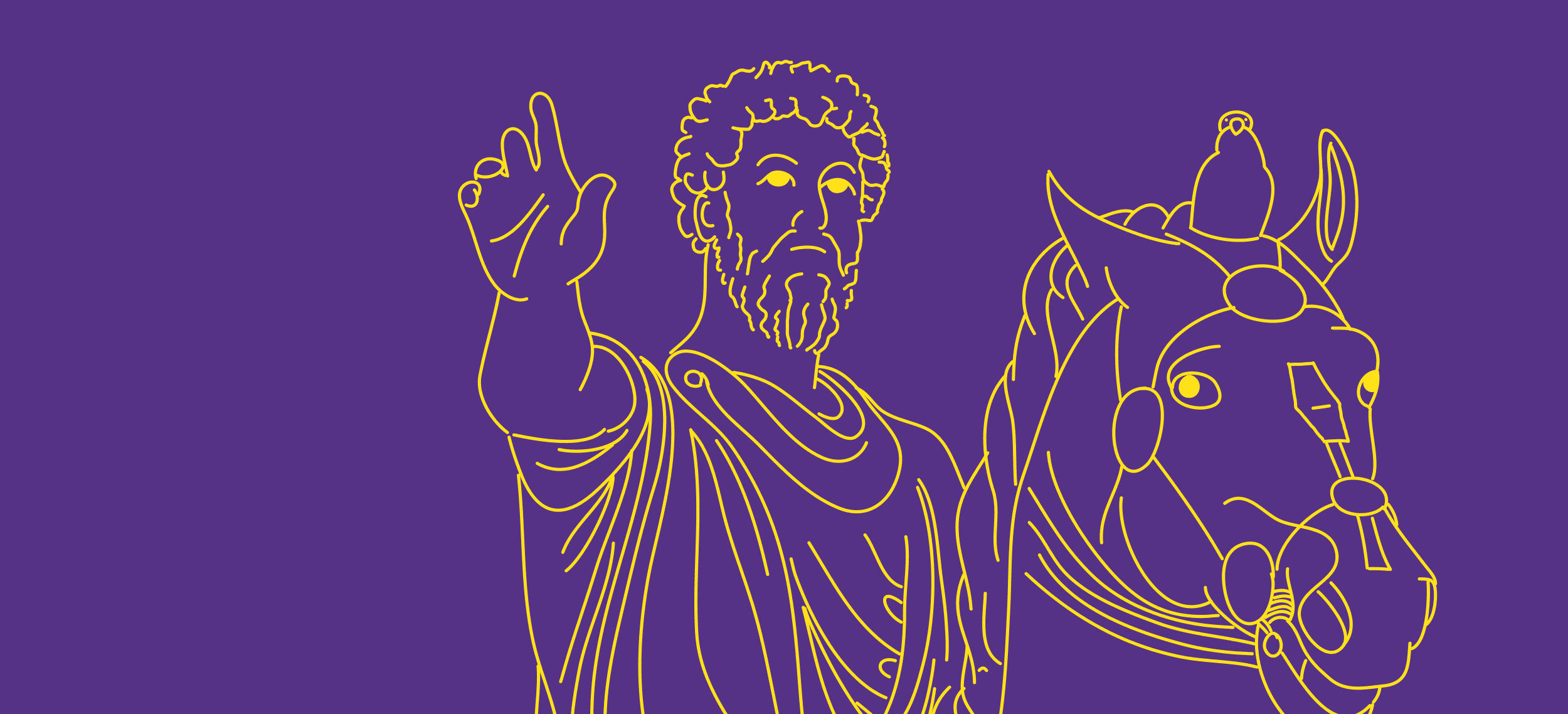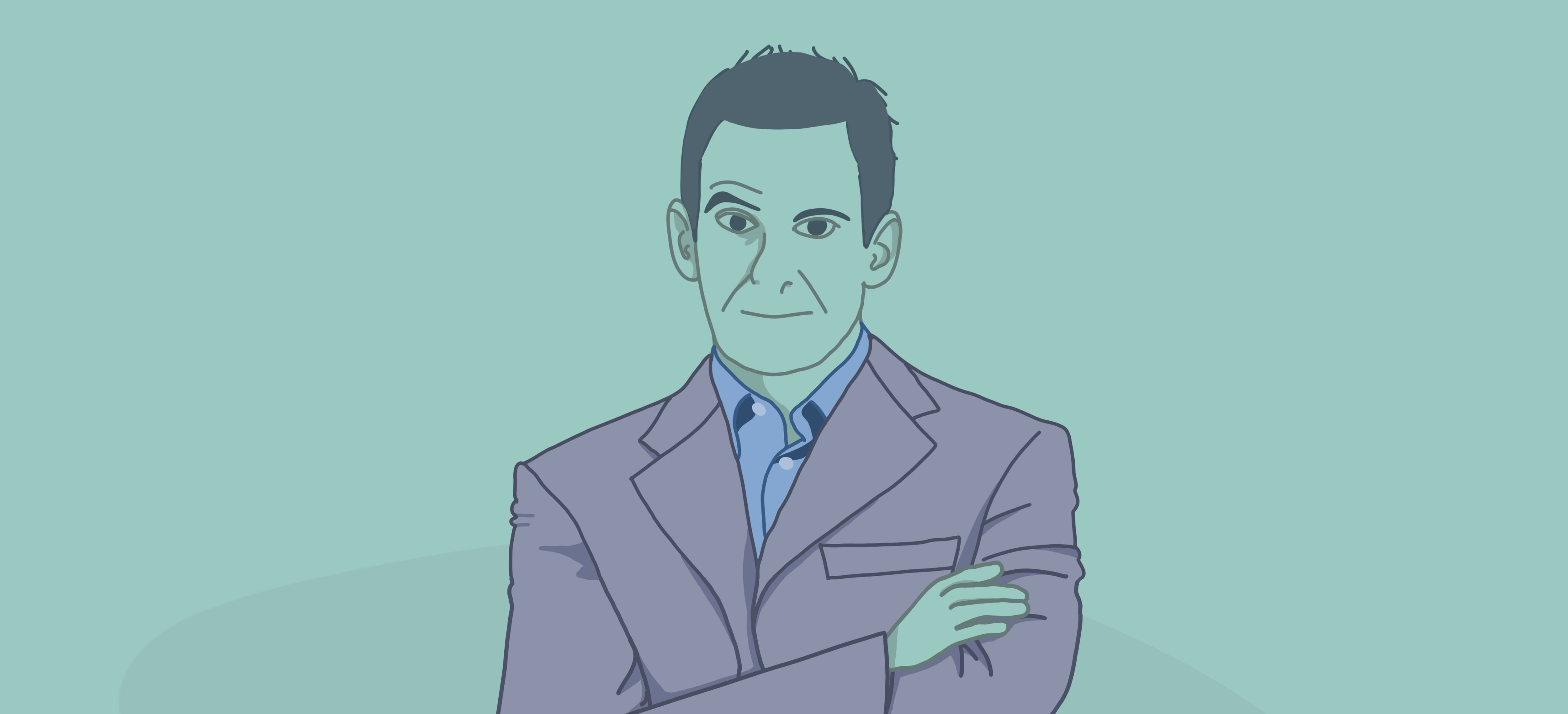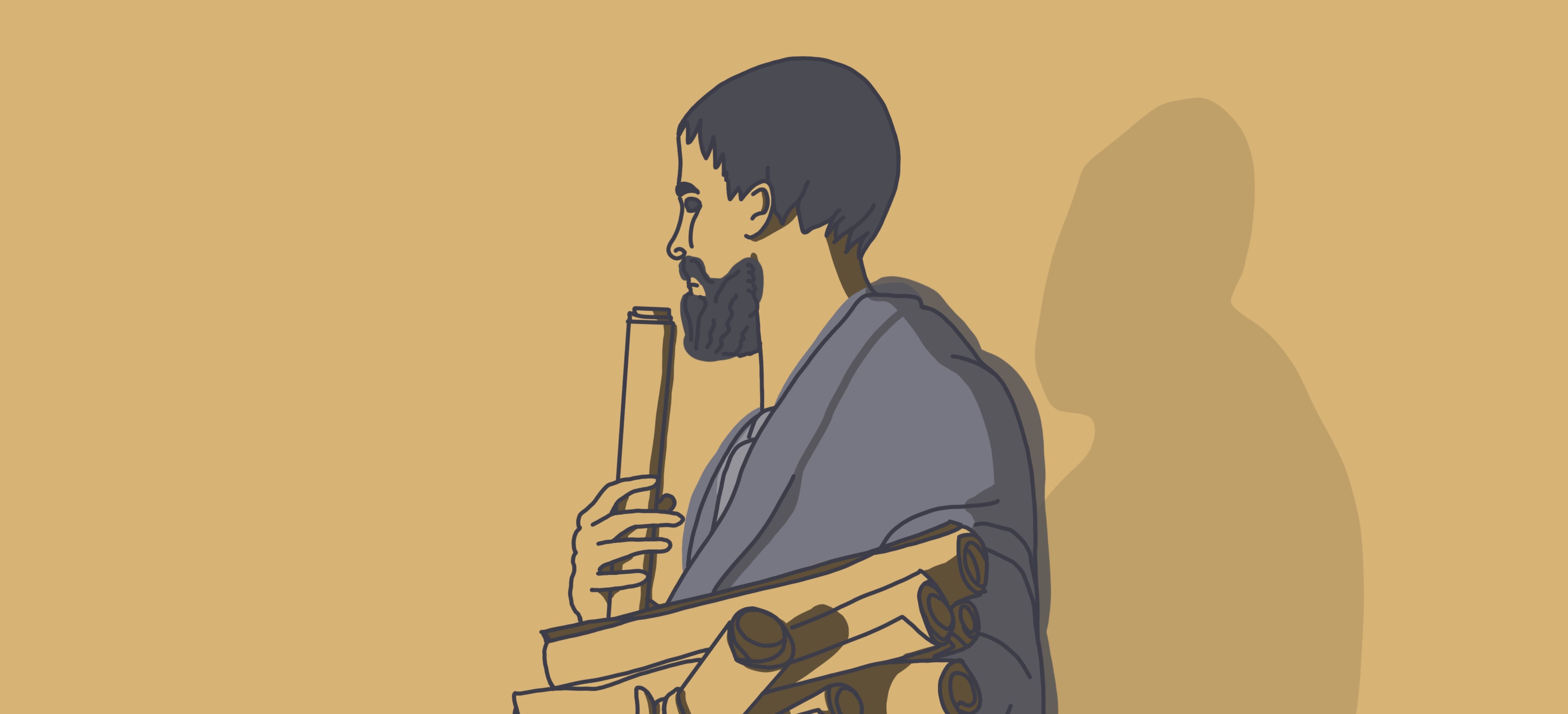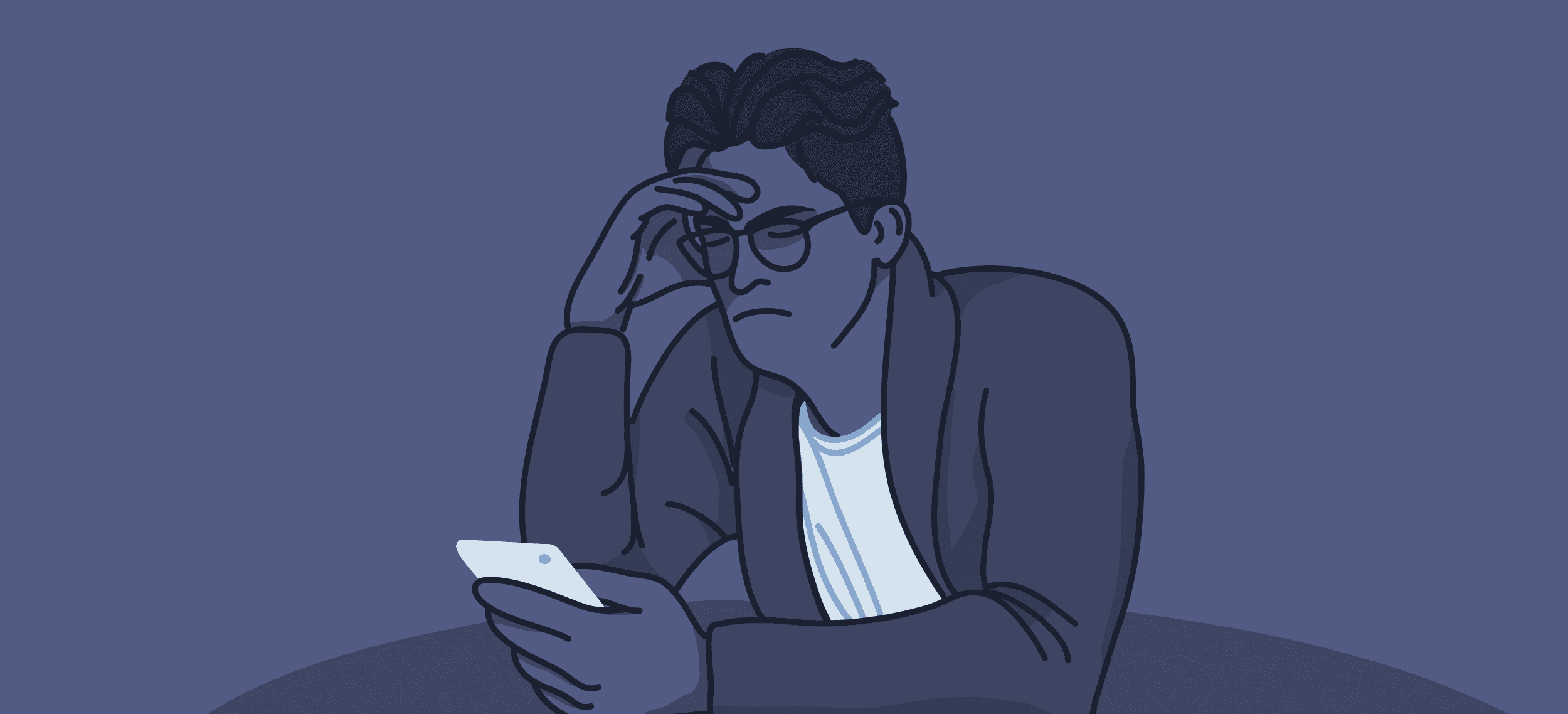Meditations by Marcus Aurelius—Summary, Notes, + Quotes
Lessons on life from an ancient Roman Emperor.

Marcus Aurelius was an ancient Roman emperor from the years 161 to 180. And we have access to his personal journals.
Although born into a rich and politically connected family, Marcus wasn’t born to be emperor — he wasn’t the biological son of the emperor he preceded.
His father died when he was three years old and he was mostly raised by his great grandfather. Taught by a variety of private tutors, Marcus was first introduced to philosophy by a painting teacher. It was then when he began to live life as a philosopher — wearing Greek philosopher clothes and sleeping on the hard floor at night.
The emperor at the time, Hadrian, became very ill. Before his death, he named Aurelius Antoninus as his successor on the condition he legally adopt Marcus, with the intention that one day Marcus would then become emperor of Rome.
What did Hadrian see in Marcus? He saw young man with excellent character and without the thirst for power — heavily influenced by philosophy. Marcus was not happy with his new path in life, but grew to accept it and thrive.
What is Meditations?
Meditations is a collection of notes Marcus wrote to himself while emperor of which he never intended to be published. These notes span a variety of topics and for Marcus were an exercise to help him think clearly and rationally. His journals were preserved, translated, and curated into a single collection which came to be known as Meditations — obviously not a name Marcus himself chose.

I read the Gregory Hays translation, which also has a very interesting introduction and history lesson that provides helpful context that I think is needed before diving into his Marcus’ actual writing.
In his notes, Marcus would frequently write about the same reoccurring themes as a way to remind himself of them and actively live his life thoughtfully and purposefully.
In my studying and notes of Meditations, I categorized these themes by what I determined practical and important. Other people (who are more knowledgeable on Marcus’s Meditations) may group the themes differently. Mine are:
- Daily Attitudes
- Happiness, purpose, your value, desires
- What other people think
- Obstacles and Fate
- Leadership and how to treat others
- Goals and time
- Anger
- Death
Meditations is divided into several chapters, each without a theme on its own (as far as I can tell). So the parts I highlighted are all from different chapters across the book. Similarly to the Bible, each note has its own number to make it easy to reference and find a quote in the book.
For each theme I’ve identified, I provided a brief summary and a few of my favorite notes on the topic.
On Daily Attitude
There were some universal pieces of wisdom in Meditations that should always be top of mind, or even read to yourself each morning.
“When you wake up in the morning, tell yourself: The people I deal with today will be meddling, ungrateful, arrogant, dishonest, jealous, and surly. They are like this because they can’t tell good from evil. But I have seen the beauty of good, and the ugliness of evil, and have recognized that the wrongdoer has a nature related to my own — not of the same blood or birth, but the same mind, and possessing a share of the divine. And so none of them can hurt me. No one can implicate me in ugliness. Nor can I feel angry at my relative, or hate him. We were born to work together like feet, hands, and eyes, like the two rows of teeth, upper and lower. To obstruct each other is unnatural. To feel anger at someone, to turn your back on him: these are obstructions.”
[2.1]
Don’t expect everything to go your way so you won’t be surprised and react when they don’t.
“Like seeing roasted meat and other dishes in front of you and suddenly realizing: This is a dead fish. A dead bird. A dead pig. Or that this noble vintage is grape juice, and the purple robes are sheep wool dyed with shellfish blood. Or making love — something rubbing against your penis, a brief seizure and a little cloudy liquid.
“Perceptions like that — latching onto things and piercing through them, so we see what they really are. That’s what we need to do all the time — all through our lives when things lay claim to our trust — to lay them bare and see how pointless they are, to strip away the legend that encrusts them.”
[6.13]
It’s easy for desires to consume your thoughts at the cost of your peace and your ability to think and do more virtuous things. Grounding your perceptions can clear restlessness and allow space for gratitude.
“When a slave runs away from his master, we call him a fugitive slave. But the law of nature is a master too, and to break it is to become a fugitive.
“To feel grief, anger, or fear is to try to escape from something decreed by the ruler of all things, now or in the past or in the future. And that ruler is law, which governs what happens to each of us. To feel grief or anger or fear is to become a fugitive — a fugitive from justice.”
[10.25]
A large majority of events that cause us to grieve, feel anger, or fear are outside of our control. And if they are out of our control, we could not have prevented it. Accept that things happen because they simply happen. Outbursts of anger or long periods of grief don’t ever fix anything, but only make you worse off.
“Epithets for yourself: Upright. Modest. Straightforward. Sane. Cooperative. Disinterested.
“Try not to exchange them for others. And if you should forfeit them, set about getting them back.
“Keep in mind that “sanity” means understanding things — each individual thing — for what they are. And not losing the thread.
“And “cooperation” means accepting what nature assigns you — accept it willingly.
“And “disinterest” means that the intelligence should rise above the movements of the flesh — the rough and smooth alike. Should rise above fame, above death, and everything like them.
“If you maintain your claim to these epithets — without caring if others apply them to your or not — you’ll become a new person, living a new life. To keep on being the person that you’ve been — to keep being mauled and degraded by the life you’re living — is to be devoid of sense and much too fond of life.”
[10.8]
On Happiness, Purpose, Your Value, Desires
Marcus found happiness by suppressing desire, ignoring what other people think, appreciating the moment, and accepting what happens as natural.
“Treat what you don’t have as nonexistent. Look at what you have, the things you value most, and think of how much you’d crave them if you didn’t have them. But be careful. Don’t feel such satisfaction that you start to overvalue them — that it would upset you to lose them.”
[7.27]
It’s a good exercise to think (or write in your journal) about what you have as a reminder that you have them. This helps suppress desire and increase gratitude for the fortune you have in life.
“Remember that our own worth is measured by what we devote our energy to.”
[7.3]
What you think about and what you do every day casts votes for who you are, exactly what James Clear reminds us in Atomic Habits:
“What is it in ourselves that we should prize?
“Not just transpiration (even plants do that).
“Or respiration (even beasts and wild animals breathe).
“Or being struck by passing thoughts.
“Or jerked like a puppet by your own impulses.
“Or moving in herds.
“Or eating, and relieving yourself afterwards.
“Then what is to be prized?
“An audience clapping? No. No more than the clacking of their tongues. Which is all that public praise amounts to — a clacking of tongues.
“So we throw out other people’s recognition. What’s left for us to prize?
“I think it’s this: to do (and not do) what we were designed for. That’s the goal of all trades, all arts, and what each of them aims at: that the thing they create should do what it was designed to do. The nurseryman who cares for the vines, the horse trainer, the dog breeder — this is what they aim at. And teaching and education — what else are they trying to accomplish?
“So that’s what we should prize. Hold on to that, and you won’t be tempted to aim at anything else.
“And if you can’t stop prizing a lot of other things? Then you’ll never be free — free, independent, imperturbable. Because you’ll always be envious and jealous, afraid that people might come and take it all away from you. Plotting against those who have them — those things you prize. People who need those things are bound to be a mess — and bound to take out their frustration on the gods. Whereas to respect your own mind — to prize it — will leave you satisfied with your own self, well integrated into your community and in tune with the gods as well — embracing what they allot you, and what they ordain.”
[6.16]
A great summation of everything Marcus views as the path to happiness and tranquility.
On What Other People Think
I struggle heavily with comparing myself to others and caring too much about what other people think, so I grouped Marcus’s thoughts on the subject into its own theme.
What does Marcus have to say on this topic? Two things: 1) you can’t control what other people think about you, so don’t worry about it, and 2) it’s foolish to entrust your happiness to others when you can entrust it to yourself.
“Yes, keep on degrading yourself, soul. But soon your chance at dignity will be gone. Everyone gets one life. Yours is almost used up, and instead of treating yourself with respect, you have entrusted your own happiness to the souls of others.”
[2.6]
‘Nuff said. #yolo
“The way people behave. They refuse to admire their contemporaries, the people whose lives they share. No, but to be admired by Posterity — people they’ve never met and never will — that’s what they set their hearts on. You might as well be upset at not being a hero to your great-grandfather.”
[6.18]
We all like to idolize actors, musicians, or start up founders, but why not the people we actually know and interact with? Your family, your friends, or even coworkers? People who can care about you back.
“It’s silly to try to escape other people’s faults. They are inescapable. Just try to escape your own.”
[7.71]
You will inevitably disappoint people. The only opinion of yourself that matters is yours.
“To see them from above: the thousands of animal herds, the rituals, the voyages on calm or stormy seas, the different ways we come into the word, share it with one another, and leave it. Consider the lives led once by others, long ago, the lives to be led by others after you, the lives led even now, in foreign lands. How many people don’t even know your name. How many will soon have forgotten it. How many offer you praise now — and tomorrow, perhaps, contempt.
“That to be remembered is worthless. Like fame. Like everything.”
[9.30]
Why make a legacy your ultimate goal in life? No matter who you are, people will eventually forget you.
“It never ceases to amaze me: we all love ourselves more than other people, but care more about their opinion than our own. If a god appeared to us — or a wise human being, even — and prohibited us from concealing our thoughts or imagining anything without immediately shouting it out, we wouldn’t make it through a single day. That’s how much we value other people’s opinions — instead of our own.”
[12.4]
Just accept people are thinking nasty things about you and you won’t be surprised if/when they make it evident. You won’t be affected because you saw that it could come. So don’t be afraid to be yourself and don’t change your opinion to try and fit in with the group.
On Obstacles and Fate
One of the most important tenets of Stoicism is the understanding and application of knowing what’s in your control and what is not. If it is not in your control, you should accept it as “what nature demanded” (or fate). And what nature demands is neither good nor bad. It just is.
“Choose not to be harmed — and you won’t feel harmed. Don’t feel harmed — and you haven’t been.”
[4.7]
The worst part of an unfavorable event is not the event itself, but the emotion that takes over you. If you didn’t get the promotion you wanted, the anger and grief you display at the office in retaliation will do you more harm than the event of not getting the promotion did. Or getting frustrated and anxious about traffic is worse for you then the traffic itself.
“You take things you don’t control and define them as “good” or “bad.” And so of course when the “bad” things happen, or the “good” ones don’t, you blame the gods and feel hatred for the people responsible — or those you decide to make responsible. Much of our bad behavior stems from trying to apply those criteria. If we limited “good” and “bad” to our own actions, we’d have no call to challenge God, or to treat other people as enemies.”
[6.41]
There is no value or usefulness in labeling an event as bad (or good). If it happened, it happened and there wasn’t anything you can do about it.
“Remember: You shouldn’t be surprised that a fig tree produces figs, nor the world what it produces. A good doctor isn’t surprised when his patients have fevers, or a helmsman when the wind blows against him.”
[8.15]
People (even friends or family) can do or say things that hurt you, bother you, or get in your way. And it shouldn’t surprise you because they are human. And if it doesn’t surprise you, you’re less likely to be hurt or affected.
“In a sense, people are our proper occupation. Our job is to do them good and put up with them.
“But when they obstruct our proper tasks, they become irrelevant to us — like sun, wind, animals. Our actions may be impeded by them, but there can be no impeding our intentions or our dispositions. Because we can accommodate and adapt. The mind adapts and converts to its own purposes the obstacles to our acting.
“The impediment to action advances action.
“What stands in the way becomes the way.
[5.20]
On Leadership and How to Treat Others
Marcus didn’t write about leadership directly, but because he was an emperor, he was a leader to everyone around him. Still, his main focus was to not let people upset him and to gently help set them straight.
“To feel affection for people even when they make mistakes is uniquely human. You can do it, if you simply recognize: that they’re human too, that they act out of ignorance, against their will, and that you’ll both be dead before long. And, above all, that they haven’t really hurt you. They haven’t diminished your ability to choose.”
[7.22]
What’s the use of getting upset or frustrated at other people when life is short. One, the act of being upset or frustrated hurts you when you don’t need to let that happen, and two you lose the opportunity to help those other people.
“When people injure you, ask yourself what good or harm they thought would come of it. If you understand that, you’ll feel sympathy rather than outrage or anger. Your sense of good and evil may be the same as theirs, or near it, in which case you have to excuse them. Or your sense of good and evil may differ from theirs. In which case they’re misguided and deserve your compassion. Is that so hard?”
[7.26]
A logical way to withhold anger, disappointment, and frustration at other people.
“If it’s in your control, why do you do it? If it’s in someone else’s, then who are you blaming? Atoms? The gods? Stupid either way.
“Blame no one. Set people straight, if you can. If not, just repair the damage. And suppose you can’t do that either. Then where does blaming people get you?
“No pointless actions.”
[8.17]
Everything people do comes from many different influences. It’s not really them as a person making a decision on their own, even if it seems that way on the surface.
On Goals and Time
One of the big tenants of Stoicism is the reflection on the shortness of life (memento mori). Often, Marcus reminds himself that life is short so it’s best to not waste time and get on with it.
“Do external things distract you? Then make time for yourself to learn something worthwhile; stop letting yourself be pulled in all directions. But make sure you guard against the other kind of confusion. People who labor all their lives but have no purpose to direct every thought and impulse toward are wasting their time — even when hard at work.”
[2.7]
Focus. If you identify what your goal is, strive to make a step forward everyday.
“Time is a river, a violent current of events, glimpsed once and already carried past us, and another follows and is gone.”
[4.43]
Marcus often makes the analogy of viewing time as a river. It’s useful to remind us to live in the present and forget the past, but also to remember that legacy after you die is meaningless because eventually no one will remember you.
“You don’t love yourself enough. Or you’d love your nature too, and what it demands of you. People who love what they do wear themselves down doing it, they even forget to wash or eat. Do you have less respect for your own nature than the engraver does for engraving, the dancer for the dance, the miser for money or the social climber for status? When they’re really possessed by what they do, they’d rather stop eating and sleeping than give up practicing their arts.”
[5.1]
It’s hard to figure this out and sometimes it changes in our lives (e.g. a dancer can’t be a dancer forever). But once you find it, do it everyday.
“Ambition means tying your well-being to what other people say or do.
“Self indulgence means tying to the things that happen to you.
“Sanity means tying it to your own actions.”
[6.51]
How to achieve tranquility.
“Do what nature demands. Get a move on — if you have it in you — and don’t worry whether anyone will give you credit for it. And do so expecting Plato’s Republic; be satisfied with even the smallest progress, and treat the outcome of it all as unimportant.”
[9.29]
Step-by-step. Action-by-action. It doesn’t have to be perfect as long as you make progress.
Anger
“When you lose your temper, or even feel irritated: that human life is very short. Before long all of us will be laid out side by side.”
[11.18.vi]
Getting frustrated or angry is a waste of time.
“How much more damage anger and grief do than the things that cause them.”
[11.18.vii]
And harms you more than the event itself that caused it, because it’s hurting your state of mind.
“When you start to lose your temper, remember: There’s nothing manly about rage. It’s courtesy and kindness that define a human being — and a man. That’s who possesses strength and nerves and guts, not the angry whiners. To react like that brings you closer to impassivity — and so to strength. Pain is the opposite of strength, and so is anger. Both are things we suffer from, and yield to.”
[11.18]
‘Nuff said.
“To be angry at something means you’ve forgotten:
“That everything that happens is natural.
“That the responsibility is theirs, not yours.
“And further…
“That whatever happens has always happened, and always will, and is happening at this very moment, everywhere. Just like this.
“What links one human being to all humans: not blood or birth, but mind.
“That it’s all how you choose to see things.
“That the present is all we have to live in. Or to lose.
[12.26]
On Death
“It doesn’t bother you that you weigh only x or y pounds and not three hundred. Why should it bother you have only x or y years to live and not more? You accept the limits placed on our body. Accept those placed on your time.”
[6.49]
Death is inevitable and expected. By letting it bothering you, you’re obstructing nature.
“Don’t look down on death, but welcome it. It too is one of the things required by nature. Like youth and old age. Like growth and maturity. Like a new set of teeth, a beard, the first gray hair. Like sex and pregnancy and childbirth. Like all other physical changes at each stage of life, our dissolution is no different.
“So this is how a thoughtful person should await death: not with indifference, not with impatience, not with disdain, but simply viewing it as one of the things that happen to us. How you anticipate the child’s emergence from its mother’s womb; that’s how you should await the hour when your soul will emerge from its compartment.”
[9.3]
Marcus wrote a lot on death. I think he feared it a lot and that’s why he wrote pretty much the same message in so many different ways — implying from my point of view that he needed these reminders often.
“A rock thrown in the air. It loses nothing by coming down, gained nothing by going up.”
[9.17]
TLDR
If you took the time to read some of these quotes, you’ll see why this summary is so long. Meditations has been the most influential book on my life. At a time where I felt I lack a purpose or satisfaction with my life (of course these feelings and thoughts still occur), Meditations is helping me push through and find tranquility. Easily, Meditations is a 10/10 must read.
You might also enjoy
-

Why I Became Vegan
An introduction to the ethical vegan argument that completely convinced me.
-

Free Will Doesn’t Exist
We can't control our choices because we can't control who we are and this changes everything.
-

Virtue is a Better Goal Than Legacy
The Stoics saw virtue as life's highest objective. I'm starting to see why.
-

Stop Comparing Yourself to Others Or Who You Were Yesterday
Why these comparisons don't make sense and how it improved my mental health.
Never Miss an Article
Get notified by email when I publish a new article.
